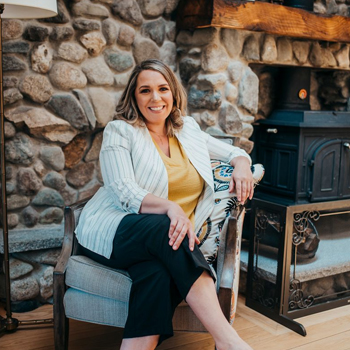
Don’t Let Your Kid Be the Bully: Why It’s on You to Teach Kindness
By Dr. Stacie Bancroft
Few things hit harder as a parent than your child coming home
quiet, detached, contemplative, hurt, and broken
over some cruel remark or action made by a schoolyard bully.
When you finally get them to speak to you, the anguish in their eyes overcomes you. They misspoke in class and everyone laughed. Or maybe, it’s that their ball rolled onto the basketball court where a child took it and purposefully kicked it into the woods. Or perhaps a fourth grader ran by where they were sitting and blurted out that your child was a “waste of oxygen”. Or maybe your child tells you through sobs that they sat at a new lunch table and each of the children there subsequently got up while laughing and moved to another table.
If your child is older, the slights become even more shocking or disgusting. Too many parents have picked up their teen’s phone only to find that they are being teased, ridiculed, or excluded in ways that seem shocking and heartless. “Is this real? Do kids really do this? How is this a thing?!”, you ask yourself as you see your baby so needlessly in pain.
“Kids can be cruel”, Boys will be Boys, Girls can be Brutal” you are told as if your society…no, your community, has come to understand this as an unavoidable part of childhood. Your blood is boiling, your faith in humanity is SHAKEN, you picture confronting this bully on the playground yourself (a daydream explored in countless comedic blockbusters). Do you talk to the school? Do you talk to the PARENTS?! Will that fix things or make it even worse? You dig deeper with your child and find that this was not a one-time event and that there have been many instances…consistent instances. HOW COULD SOMEONE RAISE THEIR CHILD TO HURT YOUR BABY? You know the bully’s parents. They chat with you at soccer games, your Facebook friends. For Christ’s sake, you volunteered together at the bookfair this year!! Do they KNOW? Do they know what a little monster they have raised? What would they SAY if they knew how much hurt their perfect, little angel had inflicted!?
At the start of my career, I completed an internship as a middle school guidance counselor. Decades later, I still occasionally shake my head in disbelief at that degree to which many of the kids participated in truly surprising levels of unkind, exclusionary, and teasing behavior. Sure, every grade has the one or two kids that grew up in a rough home who are seemingly born into the role of the classroom bully, but in reality, much of the issue comes from the indiscretion of the masses; the child of the woman from the book fair that is always cheerful and nice, the son of the father who brought 3 boxes of popsicles to the last baseball game, the girl scout that seemed so sweet in the town parade. Maybe even your child? With everyone so focused on the experience of their child, are we blind to the experience our child provides to others? Has my child laughed at the child who fell? Did my child blurt out a thoughtless comment on the playground, or kick away the ball of the child who was not welcome in their game? Or did my child stand idly by and let that happen…or maybe even laugh with the crowd?
Oh wait…has a parent ever looked at me and said to themselves, “Does she have any idea that her child’s thoughtless comment sent my child home in tears?”
Research has shown that nearly half of all children report that they have engaged in types of behavior that would be considered bullying. Actual percentages are likely significantly higher. And much of bullying behavior is group behavior. Let’s be honest…swimming against the social tide is a very challenging skill that is not developed in most young or older children (and can be tricky for adults too).
So how do you know if your child is engaging in bullying, unkind behavior and what do you do to play your role in making sure that your child is never a reason that another child is coming home in tears.
CARE: Accept that it is largely your responsibility to ensure that your child is treating others with kindness and respect.
UNDERSTAND: Know that your child is entering a social environment that will present the occasion for unkind behavior and that ANYONE (even your sweet, amazing child) can engage in bullying or unkind behavior. Know that the strength of their repertoire to not participate and stand against it is learned and requires some seriously purposeful parenting.
LOOK: Put in effort to ensure you have open lines of communication. Ask your child’s teacher, “How does my child treat others?” “Could you take a look on the playground at some point and let me know if my child is including others?”, “It is a priority for us that our child is treating others with kindness. Could you let us know an area that we could help our child strengthen?”
TEACH: Family Values is a term that can be wrought with antiquated undertones. However, it turns out that it is incredibly important to identify the prioritized values of your family and teach your children to embody them over time. Respect, resilience, honesty, compassion, empathy (to name a few) don’t just emerge at strength in our children. They are categories of learned behavior and you are most equipped to teach them.
MODEL: Ohhhh….those little eyes are watching. They are seeing how you talk, how you treat others. They will pick up on whether you trash the neighbor and laugh about it at dinner. Think about who you want your child to be in their own social circles and let them see that behavior in you.
EXPECT: Let your children know that kind and empathetic behavior is a standard your family holds itself to. Have conversations that teach your child the importance of not participating in bullying behavior.
RESPOND: If a parent does approach you with concerns about how their child is treated, whether by your child or other children, take this communication seriously. If it WAS your child, talk to your child about it…not once, but across many conversations. Adjust your teaching of values, help your child figure out how to reconcile their actions (no, mumbling ‘sorry’ is not sufficient). Support the other parent. Check-in with the other parent.. Do your part. If it was a concern with other children, how are you coaching your child to be a champion for this kid when it is needed.
ACCEPT: Come to terms with the fact that good kids bully or say/do unkind things. That is because they are kids and they are developing and we don’t expect them to have these skills yet. That’s our job. To love them and treat them with grace, while lifting them up to be their best selves!
